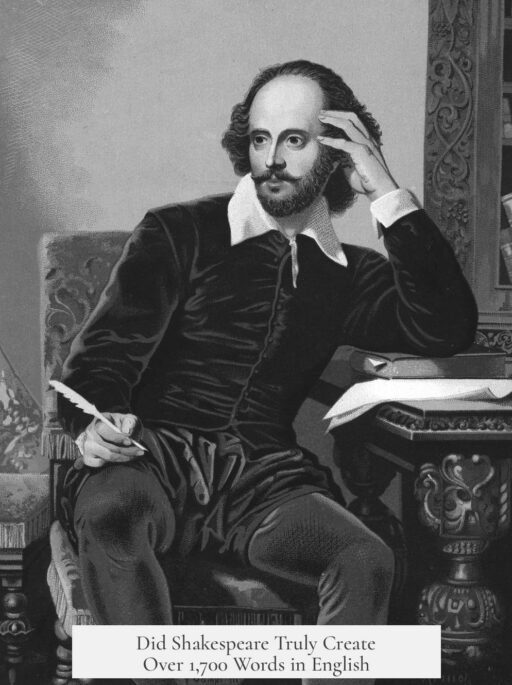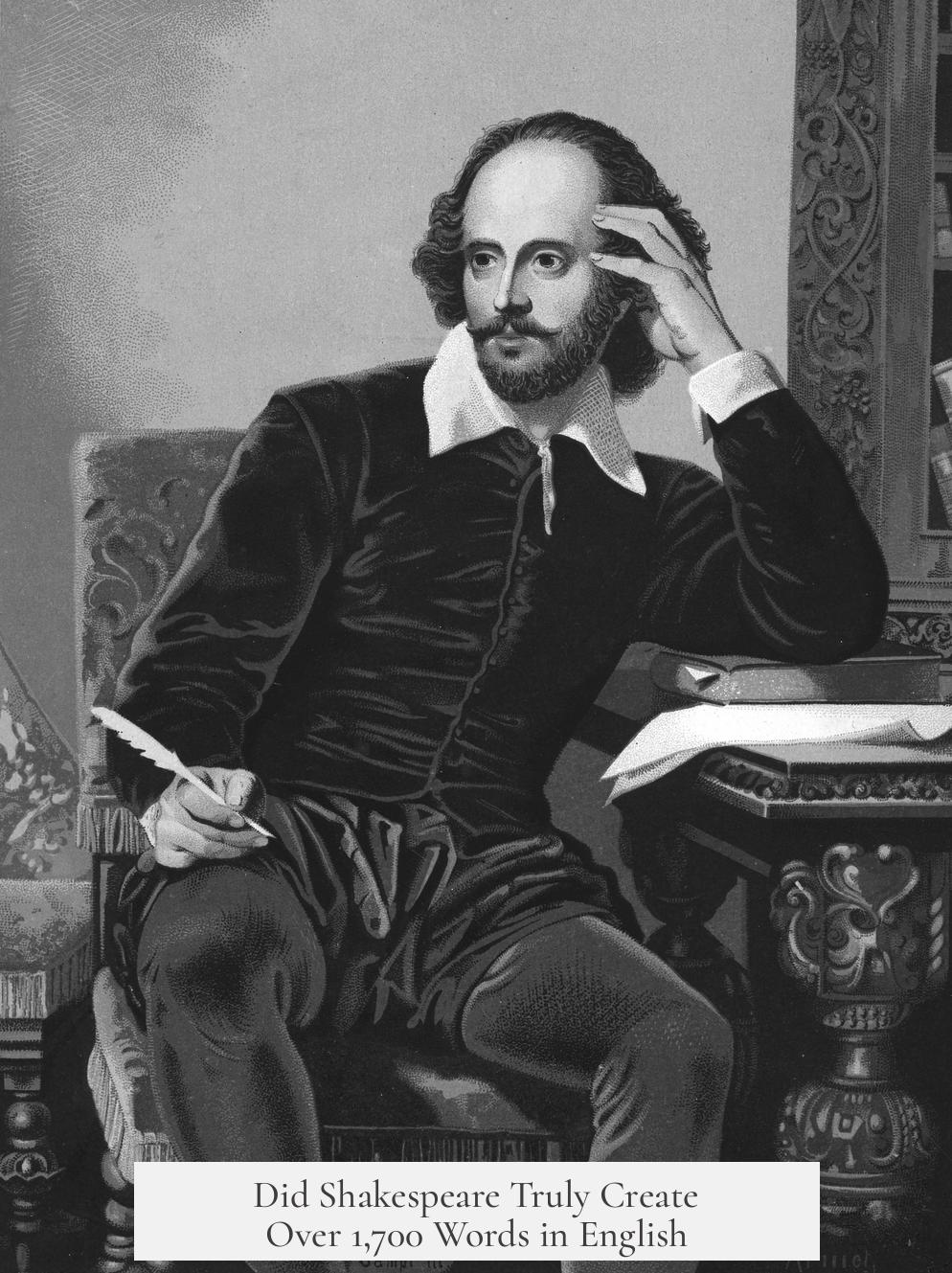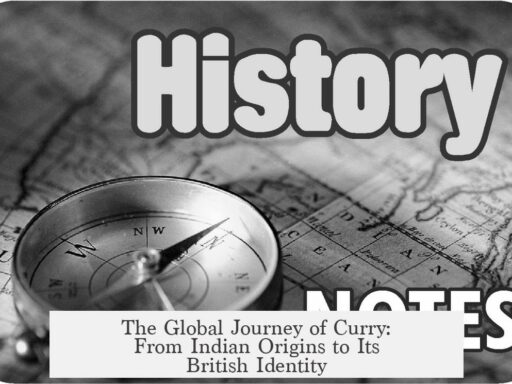Shakespeare did not invent as many words as often claimed; he mainly documented words for the first time in writing. Many words credited to Shakespeare were likely in spoken use but had not been recorded. Some were slang or regional terms he preserved in his texts. Shakespeare’s role is more about popularizing and formalizing these words than inventing them outright.
Shakespeare wrote primarily in blank verse, a form requiring a specific syllable count. To maintain rhythm and meter, he adapted existing words by adding prefixes or altering them slightly. This flexibility helped shape his language but does not mean he created all these words from scratch.
Modern computer-aided research has led to reclassification of many words once attributed to Shakespeare. Words such as “puke” have been traced back to earlier sources, showing that Shakespeare was not the original coinage but an early documenter.
- He often used existing words in new ways, which counts as new formations in English.
- For example, the noun “elbow” existed before, but Shakespeare was the first to use it as a verb, e.g., “he elbowed his way in.”
- Turning a noun into a verb often creates a new word form, which Shakespeare did frequently.
Shakespeare also introduced new meanings for old words. This creative use expanded the English lexicon by diversifying word functions, rather than inventing whole new terms.
Audiences then and now might not catch every unfamiliar term. However, context clues often clarify meanings. For instance, the word “manky,” meaning dirty or unpleasant, can be inferred from situational use even if the listener has never heard it before.
To summarize:
- Shakespeare recorded many words for the first time but did not invent all of them.
- He adapted words to fit poetic meter and introduced new grammatical uses.
- Modern research shows some words predated Shakespeare’s texts.
- Context helped audiences understand obscure or new words in his works.
Did Shakespeare Actually Invent That Many Words?
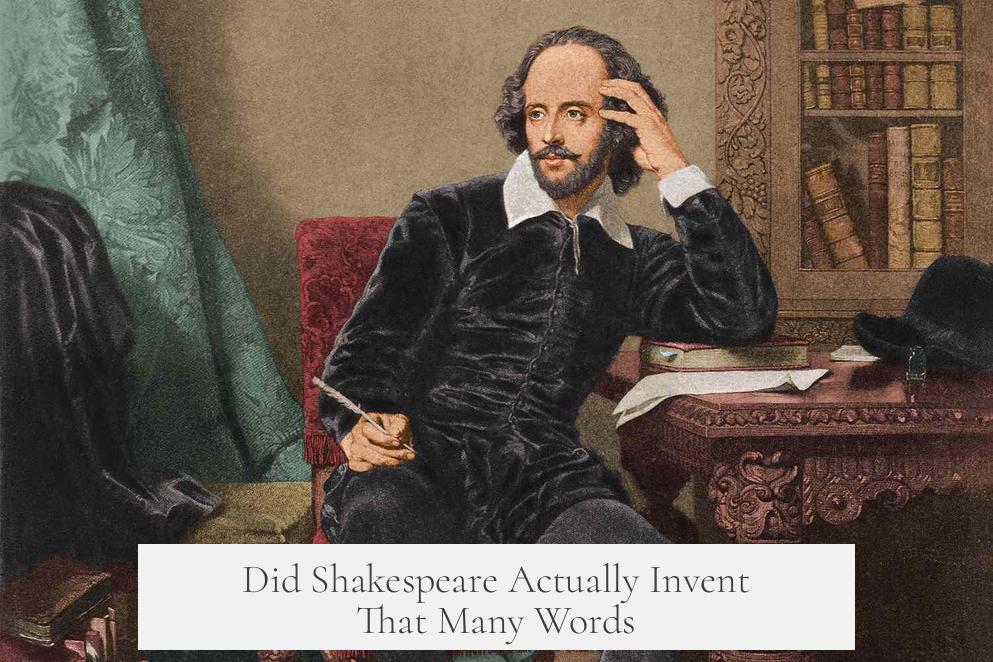
Short answer: Shakespeare didn’t invent all those words, but he was often the first to write them down, giving us the first recorded glimpse of many terms still in use today. Let’s dive into the curious case of Shakespeare’s vocabulary — a mix of genuine invention, clever adaptation, and brilliant re-use.
If you’ve ever come across the grand claim that Shakespeare invented over 1,700 English words, you might be wondering if this literary titan secretly doubled as a master wordsmith and dictionary-maker. The truth? It’s a bit more complex.
The Myth of Full Invention vs. First Recording
Many words attributed to Shakespeare weren’t necessarily brand new creations freshly minted by his quill. Instead, he was often the first person known to have written them down. Imagine those words as local slang or chatter, whispered in corners and taverns across England, until Shakespeare immortalized them on paper. The key point is recognition. He documented words that might have existed orally but weren’t recorded for posterity.
For instance, some of the terms were likely informal slang or words used colloquially, lacking any formal record until Shakespeare’s works were transcribed. These words could well have been “street talk” before making their grand stage debut.
Does that make Shakespeare a fraud? Not at all. Noticing and capturing new expressions takes keen observation. Sometimes all he did was add a prefix or tweak a word to fit his verse, but that counts as linguistic creativity!
Blank Verse and Word Tweaks: A Forced Fit
Another fascinating detail comes from Shakespeare’s famous use of blank verse — unrhymed iambic pentameter, if you want to impress your friends. This poetic form demanded a precise syllable count per line. Because of this, Shakespeare often altered existing words slightly to fit the rhythm. He stretched, shortened, or reframed words, giving rise to forms that seemed fresh.
Think of it as a lyrical puzzle — sometimes words needed a twist to suit the beat, and Shakespeare was the ultimate solver.
Computers to the Rescue: Reclassifying “Shakespeare” Words
Thanks to the magic of computers, linguistic detectives today can cross-check where words appeared first more thoroughly. Some words once labelled as Shakespeare’s inventions, like “puke,” have been reassigned origins elsewhere. The claim that Shakespeare made up the word “puke” is now under debate, with evidence pointing to prior usage.
This has narrowed the list of his true inventions whenever the research digs deeper. So, it’s less about Shakespeare as a sole language inventor and more about pinpointing who cemented words in literature first.
Recycling Words: New Uses for Old Words
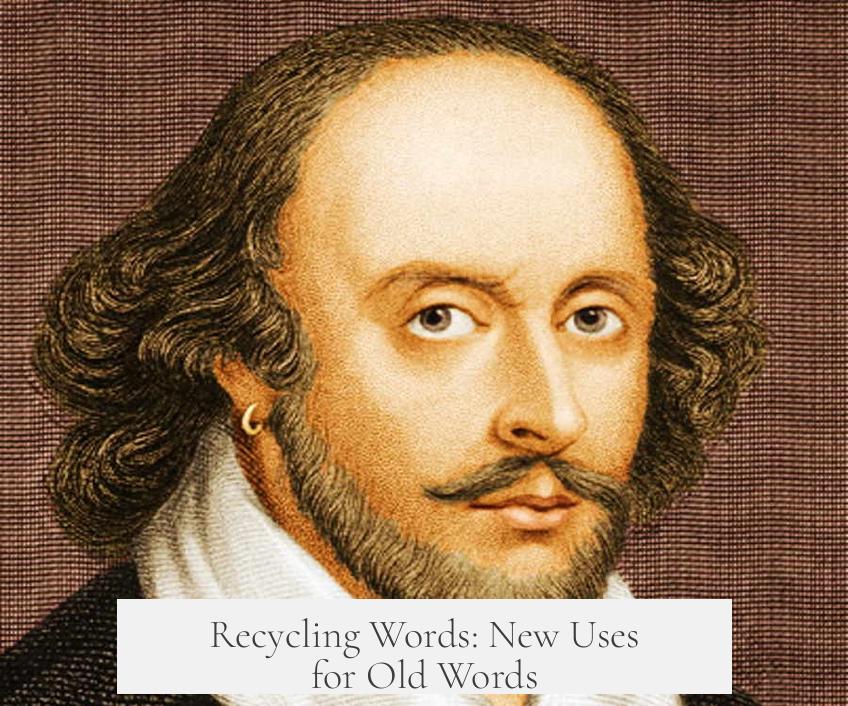
Here’s a clever trick Shakespeare pulled off — using existing words in entirely new ways. This technique technically scores points for “creating new words.”
Take “elbow,” for example. Shakespeare didn’t invent the noun — the bony part of your arm. However, in his plays, he was the first to use “elbow” as a verb, describing someone “elbowing” their way into a crowd. This verb usage was fresh.
“He elbowed his way into the conversation.”
Similarly, he turned nouns into verbs, phrases into fresh expressions, expanding English’s expressive power. For example, before Shakespeare, “showing disrespect” was the norm, but he coined “to disrespect.” A subtle shift, but it counts as new word usage.
Understanding Shakespeare’s Language: Context is Your Best Friend
Now, Shakespeare’s vocabulary can feel like a linguistic jungle. Some words seem alien at first glance — take “manky,” for instance. Most haven’t heard it, but if you stumble upon a description of a “manky coffee cup,” context clues do the heavy lifting. You instantly guess it means “dirty” or “gross.”
Much like audiences in his own day, modern readers and theatre-goers don’t catch every word perfectly. But context and story carry them through. Shakespeare didn’t always need to define his words; his scripts provided enough cues.
Why Does This Matter to You?
If you love words or want to understand how English evolved, Shakespeare is a milestone not for inventing words ex nihilo but for being a keen cultural documentarian. He helped transition spoken slang and usage into recorded language.
For writers and language lovers, Shakespeare’s strategy of repurposing words reminds us that creativity often isn’t about new inventions; it’s about fresh viewpoints and uses. So next time you think about coining new words, consider how you might bend or tweak existing ones.
Final Thought
So, did Shakespeare actually invent that many words? Not exactly. While he may not have created every word attributed to him, his genius was in capturing, adapting, and popularizing language in inventive ways. From first recordings to clever wordplay, Shakespeare shaped English vocabulary’s evolution.
His contribution feels less like a lightning bolt of invention and more like a skilled chef mixing familiar ingredients into unforgettable recipes — forever changing how language tastes and feels.
So next time you hear someone credit Shakespeare for coining thousands of words, smile and share the real scoop: he was the champion of linguistic creativity, not a lone word inventor. And that’s a legacy just as thrilling.
